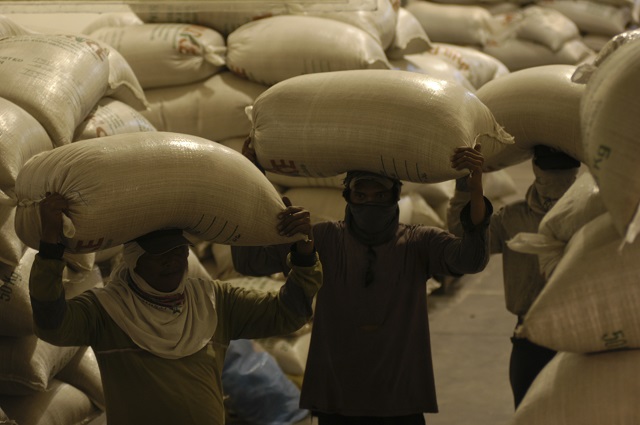Head of the country’s lead agency on rice research for development rallies workers to support the upcoming Rice Tariffication Act or currently the Senate Bill 1998, which aims to replace import restrictions on rice with tariffs.
Dr. Sailila E. Abdula, acting executive director of Philippine Rice Research Institute (PhilRice), urged in his statement early this month that cost-effective technologies should be further generated for the farmers to survive the possible influx of cheap rice from the international market.
Under the Senate Bill already signed by Senate President Vicente Sotto III and House Speaker Gloria Macapagal-Arroyo, PhilRice will annually receive P3B for six years, which will be used for “developing, propagating, and promoting inbred rice seeds to rice farmers and in organizing rice farmers into seed growers associations to be engaged in seed production and trade.”
“Although farmers’ adoption of high-quality seeds has increased from 48% to 58%, there are still much to be done. [It] challenges [us] to make good quality seeds available to every Filipino rice farmer,” he said.
Abdula, a 2018 Presidential Lingkod Bayan Awardee, further said that the Institute’s Strategic Plan 2017-2022, which became a roadmap in addressing Philippine Rice Industry problems, would also be updated.
“[This] will compel us to revisit the plan and refocus our flagship programs to revolve around seed systems,” the 2017 Outstanding Rice Scientist of the Philippines said.
In the first year of implementation of the strategic plan, PhilRice researches were published in 29 publications on ISI and non-ISI journals and books.
PhilRice also found that Gamma-aminobutyric Acid (GABA) rice from NSIC Rc 160 and Rc 222 are suitable for the production of instant rice congee, ready-to-eat meal, and other rice-based food products.
The Crop Biotechnology Center, amounting to more than P125M, was among the 48 infrastructure projects implemented last year.
“Through biotechnology, we could help increase yield potential, improve nutritional quality, broaden tolerance of rice against biotic and abiotic stresses, and increase resistance to pests and diseases,” he said.
Through Lakbay Palay, trainings, and exhibits, more than 200,000 farmers were reached and is expected to increase with the creation of Community Relations Office
Adbula expressed confidence that PhilRice role in the upcoming tariffication act will be well-carried out with its strong human resource.
In 2018, two PhilRice researchers, Jayvee A. Cruz and Dindo King M. Donayre, were conferred with scientist rank by the Scientific Career Council for their significant contribution in the field of research for development.
For the first time in PhilRice history, three officials were also recognized by the Civil Service Commission as outstanding public servants. President Rodrigo Duterte conferred the highest awards in public service to Abdula and Dr. Norvie L. Manigbas, head of Plant Breeding and Biotechnology Division. Pagasa award was also given to Roger F. Barroga, Information Systems Division Head.
“We will also strengthen PhilRice’s branch and satellite stations as they play a critical in the Institute’s expanded role on seed systems,” he added.
The Institute has seven branch stations, two satellite stations, and a field office strategically located around the country.





